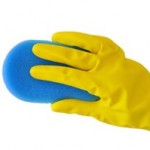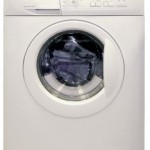1- Bleach is the “miracle” cleaner
The strong smell of bleach and the fact that it can remove all colours from surfaces have made people think that bleach is the cleaning product we can’t live without. But don’t be so quick on your judgement!
Bleach is very effective on killing germs and removing stains, but it doesn’t actually clean; it is not a good product if you want to clean grime and dirt. Bleach is an oxidizer and has no detergent on the ingredients; what it does is change the molecular structure of certain substances making them look lighter, but it doesn’t remove them (it looks clean but it’s not!).
2- Bleach will kill all mould in the world!
Well, stop there. As we said before bleach is not a miracle, so you can clean mould stains (not the actual mould spores) but only on hard non porous surfaces. This means that if you have a mould problem somewhere else, bleach will not be an effective cleaner.
3- Bleach has no expiration date
Believe it or not bleach has an expiry date! It looses up to 50% of its strength and killing power on the first 90 days after manufacturing, even in unused/unopened bottles. So forget about those bleach bottles bought 2 years ago as they won’t have any effectiveness when used.
4- Bleach is a good disinfectant and bacteria killer
OK, this is not completely wrong… as we said before bleach is a good product for killing bacteria. But there are two “ifs” on this sentence: First, bleach looses its power very quickly (see myth 3); if you use a bottle bought long time ago most probably it won’t do the job. Second, bleach works well when in contact with the affected area for 10-15 minutes; if you spray a wall, bleach will immediately run down, so the area won’t be in contact with bleach for more than a second (unless you keep spraying for 10 minutes till you faint due to its vapours, which isn’t a good idea!).
How do you feel about bleach now? We do not want to say that bleach is useless, it is the fact that we need to think twice about what cleaning products we buy and how/where we use them to make the cleaning as effective as possible. Let us know your thoughts!




 Most of us, when we think about employing a cleaner, we have the image of a happy human being who will polish every corner of our lives and leave our home silently on a trace of fresh lavender and citrus cents. But the reality is not as sweet as it looks. A major part of people employing a regular cleaner find the relationship difficult.
Most of us, when we think about employing a cleaner, we have the image of a happy human being who will polish every corner of our lives and leave our home silently on a trace of fresh lavender and citrus cents. But the reality is not as sweet as it looks. A major part of people employing a regular cleaner find the relationship difficult. Cleaning your washing machine is as important as doing the weekly laundry and it should become a regular task in every household.
Cleaning your washing machine is as important as doing the weekly laundry and it should become a regular task in every household.  Children bring rays of light into our lives and chaos into our household. After teaching them to crawl, walk and talk, there is one more essential task that they have to learn – clean. Generally kids like to copy what grown ups do so they will be very interested in purpose of your mop or vacuum cleaner from early days. They will also imitate you and with time and the right teacher will become great help around the house.
Children bring rays of light into our lives and chaos into our household. After teaching them to crawl, walk and talk, there is one more essential task that they have to learn – clean. Generally kids like to copy what grown ups do so they will be very interested in purpose of your mop or vacuum cleaner from early days. They will also imitate you and with time and the right teacher will become great help around the house. With Christmas around the corner and dining tables covered with succulent turkeys and cakes it is easy to forget what your daily calorie intake should be or what is the meaning of the word calorie in general. To top that bloated next morning feeling, it is more than likely that you will have to wake up to a house full of dirt, leftovers and unwashed dishes. Don’t despair, you can make your house spotless and burn calories at the same time.
With Christmas around the corner and dining tables covered with succulent turkeys and cakes it is easy to forget what your daily calorie intake should be or what is the meaning of the word calorie in general. To top that bloated next morning feeling, it is more than likely that you will have to wake up to a house full of dirt, leftovers and unwashed dishes. Don’t despair, you can make your house spotless and burn calories at the same time.